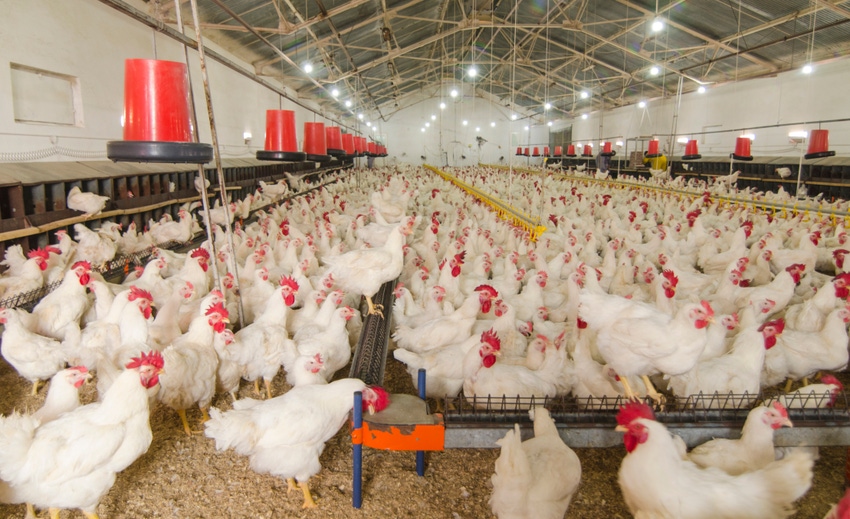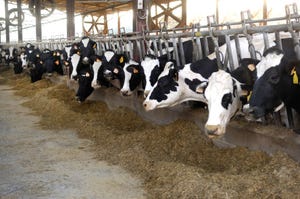When antibiotic growth promoters are removed from poultry diets, disease challenges can emerge.
August 27, 2018

Poultry producers worldwide lose $6 billion annually due to bacterial-related disease in their flocks, and the reduction and elimination of antibiotic growth promoters (AGPs) in poultry diets is leading to a higher incidence of diseases that challenge gut health, making those economic losses worse.
Poultry producers attending Amlan International’s First Summer International Poultry Seminar in Chicago, Ill., in early August heard from industry thought leaders about the latest research into the impact of bacterial resistance on modern poultry operations and what measures are needed to drive progress in global poultry production.
“We hosted experts on the forefront of academic research and producers on the leading edge of animal husbandry practices for a deep look into barriers to optimal intestinal health, productivity and profitability in poultry production,” said Flemming Mahs, president of Amlan International. “Even more exciting was to see the new technologies that are addressing some of these challenges. It is this new innovation that promises strategic progress for poultry producers and can provide benefits throughout the food chain.”
Seminar presenters included leading poultry producers such as Amick Farms (OSI Group), which produces 3 million chickens per week, and Tyson Foods, one of the largest companies in the global food industry. Leading academic researchers included Dr. Margie Lee, department biomedical sciences and pathobiology, Virginia Tech University; Dr. John Maurer, College of Veterinary Medicine, University of Georgia; Dr. Peter Ferket, department of poultry science, North Carolina State University, and Dr. Marvin Whiteley, biological sciences, Georgia Tech.
Steve Kernen, vice president of marketing for Amick Farms, said for the industry, “antibiotic-free poultry production is like a freight train; you can choose to get on board or not get on board.” U.S.-based companies such as Amick Farms and Tyson Foods are converting some or all of their production to antibiotic-free, but the change comes at a cost.
Those costs, according to Lee, include reduced efficiency and increased production costs. Producers such as Tyson Foods are overcoming those challenges by refining nutrition management, adopting new technology and altering animal husbandry practices.
“In no-antibiotics-ever (NAE) production systems, maintaining gut health in the birds and minimizing intestinal disruptions are critically important,” said Dr. Phillip Smith, Tyson senior poultry nutritionist. “Having a strong nutritional program is even more important in NAE. Some of the new nutrition technologies that are coming forward are very promising to help address these challenges.”
Advancements in natural feed additives are helping transform the poultry industry by providing alternatives to AGPs for efficient feed use and improved bird performance. At the seminar, field results from Amlan’s natural growth promotion product, Varium, were presented. Varium works by supporting the bird’s intestinal health and immune system and by controlling fungal and bacterial diseases caused by Clostridium perfringens, salmonella and Escherichia coli.
Oil-Dri Corp. of America, a Delaware corporation doing business as Amlan International, has grown its product offering across the intestinal health and AGP alternative market, driven largely by the research conducted at its laboratory campus in Vernon Hills, Ill. In 2017, the company added the Richard M. Jaffee Laboratory for Applied Microbiology to the campus. Amlan sells animal health products outside of the U.S. Product-associated claims may differ based on government requirements, and product availability may vary by country.
You May Also Like



